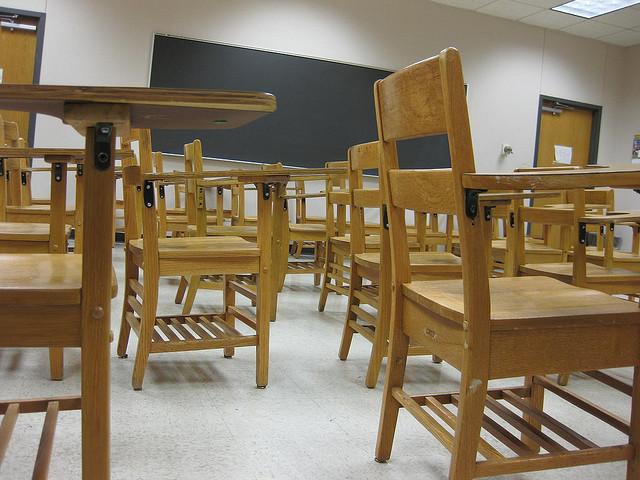Over the last month, no one in President Donald Trump’s administration has received more criticism than Secretary of Education Betsy DeVos. Her vote was extremely close, resulting in a tie. Vice President Mike Pence fulfilled his duty as the tiebreaker and voted her into her new job.
While some of her answers to questions during the hearing in the Senate were concerning, I have no doubt DeVos will be surrounded by top education advisers who will assist her in the implementation of new policies. She deserves an opportunity to carry out any reforms she believes will better the American education system.
From what I see, DeVos is a woman who cares about education and wants to give children opportunities they would never have without major financial support. U.S. Sen. Bernie Sanders, I-Vermont, showed dismay over the fact DeVos is a billionaire, but she has used her advantageous position to help others.
The DeVos family, part of society’s upper echelon in Michigan, donated $90.9 million to charities in 2013 alone. When dividing the donations up by percentage, 48 percent went to education, 27 percent to health and community services, 13 percent to churches and other religious organizations and 12 percent to the arts. In 2014, Forbes ranked the DeVos family number 20 on their list of the 50 top givers. Throughout their lifetime, the family has donated $1.2 billion to charitable causes.
American public education in peril as DeVos prepares to take the reins
DeVos does not signal any end to the public school system. If she tried that with any proposal, it would almost certainly be defeated in Congress. Besides, what the federal government spends on education is pennies compared to investments made by the states and localities. What DeVos wants to find is ways to reform the current system to benefit students. The new secretary is vilified because she is someone who aims to shake up the current establishment on education.
No one can deny America’s education system is in crisis despite higher spending. The late Andrew Coulson, a senior fellow at the Cato Institute, published in March 2014 a policy analysis on state education trends over the last 40 years. Despite the inflation-adjusted cost of K-12 education rising at a steady rate, there has been no growth in the performance of grades in major subjects.
This isn’t just an American problem. Even at an international level it isn’t clear if an increase in public education spending leads to success. A study published in January 2007 by Eric Hanushek of Stanford University and Ludger Wößmann of the University of Munich concluded structural changes and performance-based incentives were needed to improve the quality of schools rather than adding more funding.
A September 2008 report by Dan Lips and Shanea Watkins of the Heritage Foundation has also found the rise of government spending in education has not corresponded with equal improvement in the American education system.
With many experts recognizing the pitfalls of adding more spending as a way to fix the problem, DeVos could be a breath of fresh air.
DeVos favors alternatives to the traditional public school system, like charter schools. Charter schools are still public schools, but are offered more leeway when it comes to experimenting with how they teach students and allocate resources. These schools have helped economically and academically stressed families.
Secretary of Education Betsy DeVos is an example of what happens when we don’t get involved
The Center for Research on Education Outcomes conducted a national charter school study in 2013 and found 54 percent of students who go to charter schools are from low-income families. In comparison, 48 percent of students who go to traditional public schools are in the same category.
The CREDO study also found charter schools serve a higher percentage of English-learning, black and Hispanic students than traditional public schools. Charter schools serve 35 percent of white students while traditional schools serve 52 percent. This dispels the myth they predominantly serve white, wealthier families.
CREDO went further and published an urban charter school study in 2015. It found most students who went to these schools experienced gains in their academic achievement equivalent to 40 more days of learning math and 28 more days of learning reading.
Betsy DeVos’ thoughts and prayers won’t stop the bullets that will end countlesss American lives
In August 2014, the Center for Reinventing Public Education published a meta-analysis of the studies on charter schools and student achievement. It found students enjoy higher achievement gains when it comes to math, though reading has seen no significant differences.
This mountain of academic information proves charter schools are generally beneficial to struggling students. DeVos is likely to move forward with an expansion of these kinds of schools now that she’s secretary. She has an excellent opportunity to change America’s education system for the better. Let’s hope she does well.
John M. Graber ([email protected]) is a junior majoring in history and political science.














